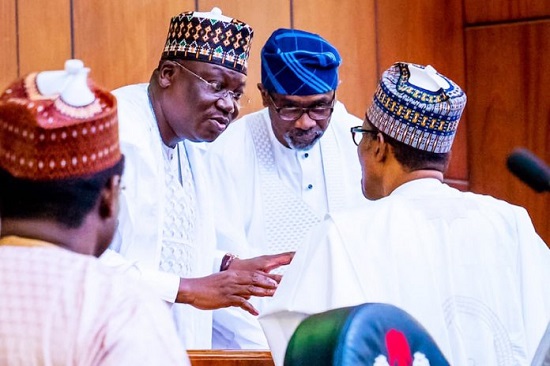President Muhammadu Buhari’s recent pledge to seek stronger collaboration in the fight against corruption may sound ambitious but that announcement at this time has certainly exposed the flaws in his adopted approach. Truth is all is not well with anti-corruption campaign of this administration. The battle should be embraced by every sector of governance for it to be impactful and a more clearly defined approach is needed.
From what the president said the other day, it appears that he has been fighting the war against corruption without involving relevant arms of government, which is what he intends to do now. This appears too little and too late after more than five years in office.
A solo fight against the corruption monster by the presidency can hardly produce good result. That may be the reason not much progress has been made and the president wants to see result. Obviously, the corruption challenge has worsened rather than abating, which is confounding. A change of approach could make a difference.
We certainly support any move made that would yield better positive outcome given the great damage corruption has done to the country.
The Policy was put together by the ICPC, in collaboration with the Office of the Secretary to the Government of the Federation (SGF) and the National Orientation Agency (NOA).
Although, he charged Nigerians to join the government in combating the menace and return the country to the values of honesty and integrity, merely prodding Nigerians won’t achieve anything without a sense of direction from a committed leadership.
He recalled, “As military Head of State, I fought corruption headlong and held public officers who abused their offices or misused public funds to account. I introduced the War Against Indiscipline (WAI), one of whose cardinal objectives was to promote ethical conduct, integrity, and hard work…in 1984, I recognised, as I do now that corruption poses a clear danger to Nigeria. So, we cannot relent in efforts to eradicate it in all its ramifications. As I have often reminded Nigerians that if we do not kill corruption, corruption will kill Nigeria.”
In his inaugural speech in 2015, President Buhari affirmed his administration’s determination to rebuild and reform the public service to become more effective and serviceable. That has not been done, five years on. It is, therefore, curious why the same president who has not been serious about reform of the public service would be charging public servants to apply themselves with integrity to stabilise the system.
In the same vein, asking legislators who are allegedly overpaid to “join hands together to fight corruption and return to our traditional values of honesty and integrity,” is a waste of time without any roadmap on how to prevent corrupt practices in all bureaucracies across services. This newspaper feels that launching the National Ethics and Integrity Policy as a fresh roadmap to return Nigeria to critical national values is meretricious without plugging all avenues of stealing public funds with impunity.
The corruption that disappeared on the appearance of Buhari in 1984 now remains unshaken. That explains why the malaise has escalated. For instance, the sleaze at the Niger Delta Development Commission (NDDC), where billions meant for development projects that would benefit ordinary citizens have been stolen smacks of failure of the anti-corruption war.
Also, the arrest and on-going trial of Ibrahim Magu, the suspended acting chairman of the Economic and Financial Crimes Commission (EFCC), is the climax of the blight upon the anti-corruption campaign. That the czar of the anti-corruption campaign is enmeshed in corruption charges speaks volume for what has become of the campaign. At this juncture, it is important to stress that the president should realise that he is in charge. The buck stops on his table. He should decisively confront the corruption challenge rather than lamenting. Whatever he needs to do to curb corruption should be done. He should avoid giving the impression that an assignment pledged to the people is now beyond his capacity to execute.



